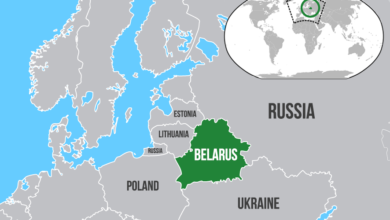#thisisacoup
There is a reason the hashtag #thisisacoup became an overnight sensation. German imperialism, using its power within the EU, has essentially taken control over the Greek government. Greece’s sovereignty was placed against the wall by German bankers as they seek to take control of and manage Greece’s economy.
In the early hours of July 13, a new, imperialist-imposed agreement was reached between the Greek government and the German-led European bloc. Details are still coming to light, but the terms are nothing short of astonishing. Not only will the cuts and other anti-worker measures be deepened, but a trust fund of sorts managed by an outside entity will be established in which Greece will deposit tens of billions of Euros worth of state assets, serving as both a staging ground for sweeping privatization and to strip the Greek government of sovereignty over its own property. Greece is to become even more of a German neo-colony.
The German ruling class’ shockingly hard line is aimed at sending a message: opposition of any type to its brutal austerity doctrine in the less powerful periphery will not be tolerated. They have made the calculation that the SYRIZA government must fall or move sharply to the right by dumping its radical wing for Germany’s stranglehold on Europe to continue.
Germany, which is the dominant imperialist power in Europe, faces growing opposition not just in Greece, but throughout the periphery of the Eurozone. New left-wing parties have attracted a great deal of popular support. In Spain, which will hold a general election later this year, the anti-austerity party Podemos stands a serious chance of winning. Sinn Fein in Ireland, another country that was forced into a cash-for-austerity bailout agreement, has been on top of some opinion polls.
Just days ago it appeared that everything was falling in line – the SYRIZA-led government seemed to turn its back on its own referendum which allowed the Greek people to overwhelmingly vote NO to the austerity package. Syriza’s leadership acquiesced to the Troika’s demands, the parliament approved, and the offer for a third bailout program received positive early reviews from European officials. As finance ministers met last weekend to prepare for the now-cancelled heads of state and government meeting on Sunday, the Eurozone crisis took yet another unexpected turn – Germany rejected the Greek proposal.
At first glance, German imperialism’s brinkmanship may seem to be highly irrational. After all, the Greek government’s initial post-referendum offer gave the Troika basically everything it had been asking for.
Although SYRIZA does not intend to lead a revolutionary break with capitalism and squandered the momentum of the referendum victory, it is also worth noting that the Greek working class has not yet been politically prepared for the extreme hardship associated with the overthrow of the ruling class – an enterprise that historically includes warfare of both the military and economic variety. Even an exit from the Eurozone and the re-creation of a Greek currency will lead to harsh economic suffering in the short term. The Communist Party of Greece, which does advocate the socialist transformation of society, has throughout this process unfortunately followed a sectarian strategy that has not allowed it to be a major factor in changing the relationship of forces.
Germany did not reject the Greek offer simply because it did not include enough cutbacks, privatizations and anti-worker “reforms” – they had signed off on effectively the same deal just two weeks earlier. By drawing out the negotiating process so extensively, the SYRIZA government has shown more defiance than the German ruling class is willing to tolerate, and it appears intent on making an example out of Greece. German imperialism’s aim is no less than the overthrow of SYRIZA or the expulsion from its ranks of the more left wing forces and the utter humiliation of the Greek masses.
The latest deal struck between Greece and the Eurozone appears to be advancing the latter aim. There must be yet another parliamentary vote on these even harsher terms, which will likely see a further rebellion of left-wing SYRIZA members. Labor Minister Panos Skourletis has already publicly questioned the new agreement.





